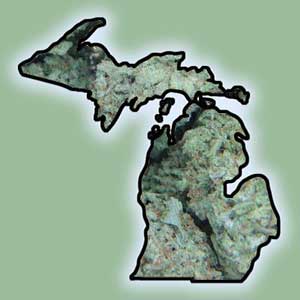 The state of affairs in Michigan’s medical marijuana program earned a C minus grade on a national report card issued by Americans for Safe Access (ASA) yesterday.
The state of affairs in Michigan’s medical marijuana program earned a C minus grade on a national report card issued by Americans for Safe Access (ASA) yesterday.
The State Report Card was issued as part of a White Paper titled, “Medical Marijuana Access In The U.S.,”released on July 7. The Paper evaluates the 34 states that have medical marijuana programs- yes, it’s 34, plus D.C.- by ranking them in four categories, adding the scores and publishing the grades. Jamie Lowell, Chairman of the Michigan chapter of ASA, applauded the White Paper. “These state-by-state reviews showcase our successes and clearly define the work that remains,” he told The Compassion Chronicles.
The highest mark given was a B, a grade earned by both Rhode Island and Maine, followed by California and Washington with a pair of B- scores. Eight states earned various C grades including Colorado, Michigan and Oregon.
Although 23 states have authorized medical marijuana for use an additional 11 states have given limited access to a single form of marijuana medicine known by it’s chemical abbreviation, CBD. These states are commonly referred to as ‘CBD-only states’ and each of them received F grades on their Report Cards.
Michigan’s Report Card showed a few areas for improvement. Receiving a ‘0- score were the following categories: DUI Protections; Employment Protections; Housing Protections; Scheduling; Organ Transplants; Allows Dispensing Facilities; Explicit Right to Edibles/Concentrates, etc.; Reasonable Purchase Limits; Task Force/Advisory Board for the state program. Michigan did score full points in 16 other categories and received partial credit in 10 others. “Many of these scores were not a surprise,” said Lowell. “We have legislation already introduced to solve many of these problems.”
Some of that legislation could be advanced in short order. Robin Schneider of the National Patients Rights Association announced a July 16th hearing of the Senate Government Operations Committee for a pair of bills designed to improve patient futures for Michigan’s most ill and injured residents. Schneider’s comments came during an NPRA-sponsored fundraiser at Cannabis Counsel for Law Enforcement Against Prohibition featuring the international organization’s Executive Director, Major (Ret.) Neill Franklin. This would be the second hearing on HB 4271 and HB 5104 in the Committee and will most likely end in a vote.
Timing is everything: the legislature meets for a single day in July, one in August, three weeks in September and is then dismissed until after the general election in November. Once approved by the Committee the bills still have to be debated and passed by the full Senate, then they will be returned to the House of Representatives for agreement on any differences between the House and Senate versions. Should the bills fail to escape Committee until September they may be lost in the swell of election-year bustle.
Passage of these two long-suffering bills will alleviate the shortcomings in the Edibles and Dispensing categories, but serious concerns remain. The state Licensing And Regulatory Affairs (LARA) bureau, which administers the Medical Marihuana Program (MMP), has silently scheduled a hearing for July 16 to discuss their plans to overhaul the Administrative Rules. One changed proposed by LARA: more than doubling the cost to register for impoverished Michigan citizens, who currently receive a discounted rate of $25 for a two year license. A Patient/Practitioner Focused Task force or an Advisory Board should be established to liaison between the state and her 150,000 registered patients and caregivers.
“Greater communication between those making the decisions and those affected by them would go a long way towards creating confidence among patients in the state’s ability to manage the (medical marijuana) Program,” Lowell challenged. “This report shows our state is a leader in marijuana law reform, but we could also take a lesson from other successful programs where interactivity is not limited to an automated telephone service or a computer screen.”
Overall we could say that Michigan was performing at barely adequate levels and has yet to live up to her potential.
Source: TheCompassionChronicles.Com
























